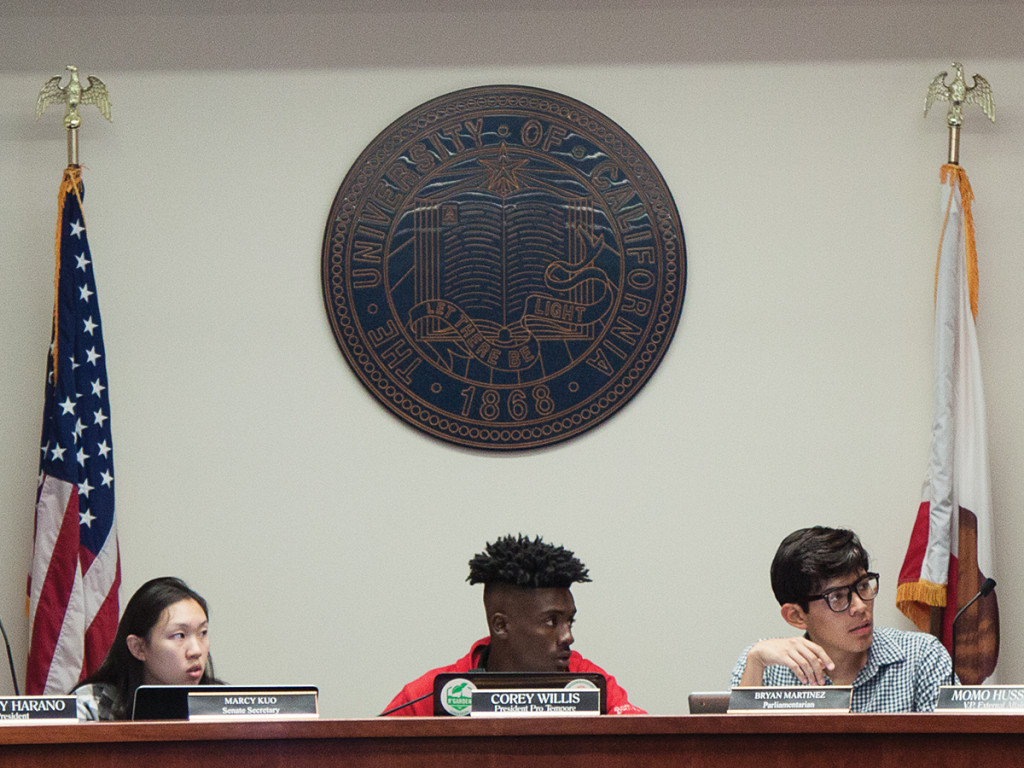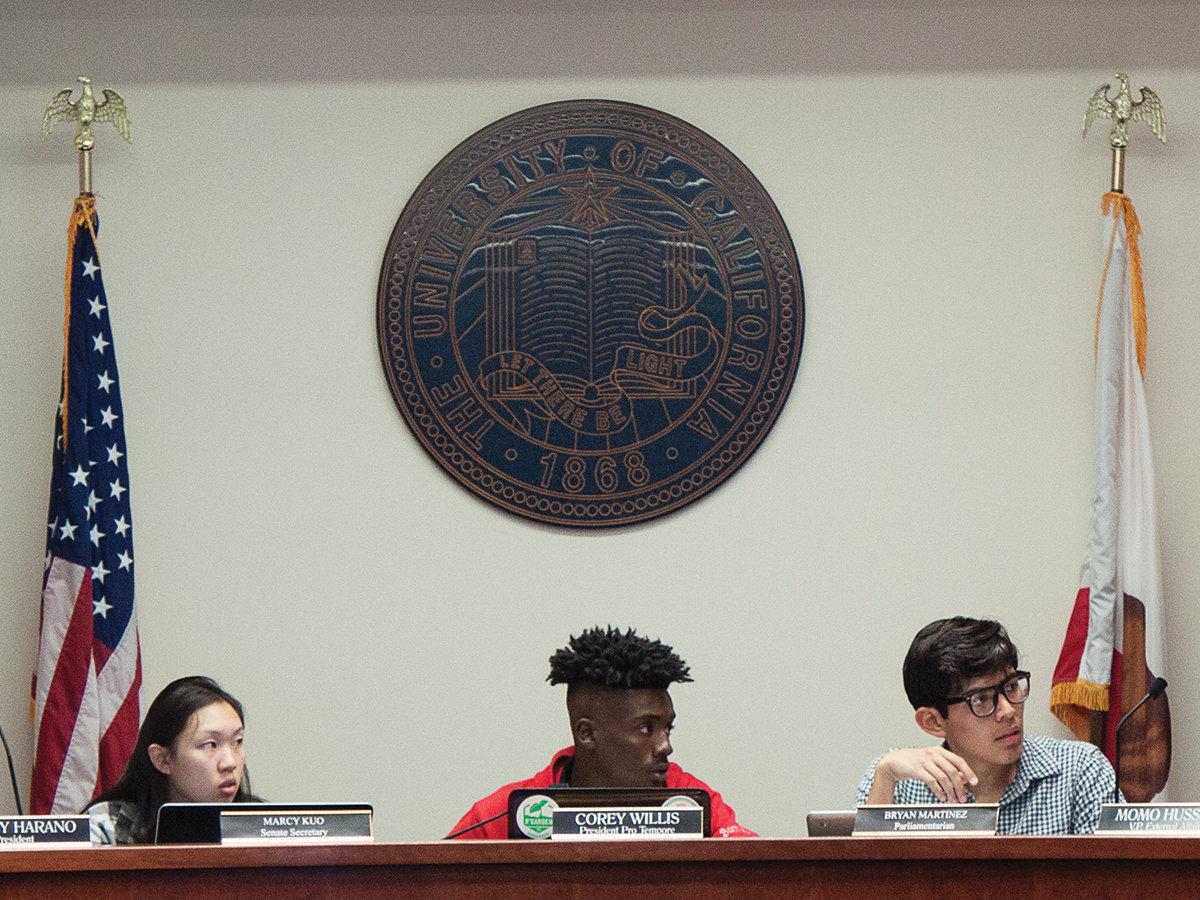
In a letter addressed to ASUCR executive cabinet officials (ECAB) on Oct.19, 2015, UCR Chancellor Kim A. Wilcox provided instruction for the student government to transfer oversight of ASUCR’s executive director from ECAB to the vice chancellor of student affairs. The letter raised concern amongst the organization, as this change will allow campus administration to have direct oversight over a staff member who oversees ASUCR, which is largely independent from administration.
In response to this letter, ASUCR President Ashley Harano contacted the ASUCR senate, ECAB and the executive director notifying them of this instruction. In addition, Harano sought counsel from attorney and former UCR alumnus Scott Talkov to create a fact-finding report regarding the legitimacy of administration’s attempt at oversight. Currently, administration only has oversight over the ASUCR budget, which was enacted in 2010 by a memoranda of understanding between former Chancellor Tim White and former ASUCR President Chris Kim.
After a meeting between Harano, Chief Campus Counsel David Bergquist, Vice Chancellor of Student Affairs James Sandoval and Talkov on Oct. 21, 2015, Talkov finished and sent his ASUCR Staff Oversight Fact-Finding Investigation Report to ECAB, which he shared at an open-session of ASUCR Senate. Overall, his report argued that “handing over control (of ASUCR) to administration would not protect student rights and autonomy …” with reference to documents and legalities in tandem with analysis to support this claim.
In turn, Bergquist sent a letter to Talkov to respond and clarify how “ASUCR Presidents cannot by policy or law supervise the ASUCR Executive Director” and that “the Chancellor is committed to reaching an agreement which respects ASUCR autonomy and University Policy,” which has been shared to members of ASUCR, but has yet to be presented by Counsel Bergquist during an open session.
Bergquist cited that ASUCR does not have the proper human resources training and also cannot therefore properly oversee the executive director, who maintains a close relationship with ASUCR and serves as an advisor to the student government. In addition, Bergquist cited similar reporting relationships that other ASUC’s have such as UC Berkeley and UCLA.
Some members of ASUCR, such as Executive Vice President Taylor Valmores, were concerned about the extent this oversight may have on ASUCR. “The argument basically boils down to accountability versus autonomy, they’re both really important. I think accountability is more important (about 60-40). I think that you can do both and they’re not mutually exclusive … we can do things to hold Laurie (the current executive director) more accountable than going straight under the administration’s office,” Valmores elucidated.
Vice President of Internal Affairs Michael Ervin, explained however, that while he was initially skeptical of the letter, he felt that this oversight would not inhibit ASUCR’s autonomy. “Any change to Laurie won’t have a change to this institution … because if that was the case they would’ve stepped in when they had oversight over the money and that hasn’t happened,” Ervin explained.
“It should also be noted that other UC campuses such as UC Berkeley have this exact same reporting relationship that the campus counsel has presented and they’re some of the most anti-admin student governments in California.”
Currently, no final action has been carried out by either members of ASUCR or UCR campus administration in regards to this situation. Wilcox has lifted the deadline for when the “reporting relationship” between VCSA and the Executive Director of ASUCR is to begin.
As of the publication of this article, a joint letter by Talkov and Bergquist is planned to be produced and presented during an ASUCR Senate open-session sometime during the coming 2015-2016 winter quarter. In addition, administration will be meeting with the Highlander to discuss the report this week.
Contributions made by Jessica Baker.








